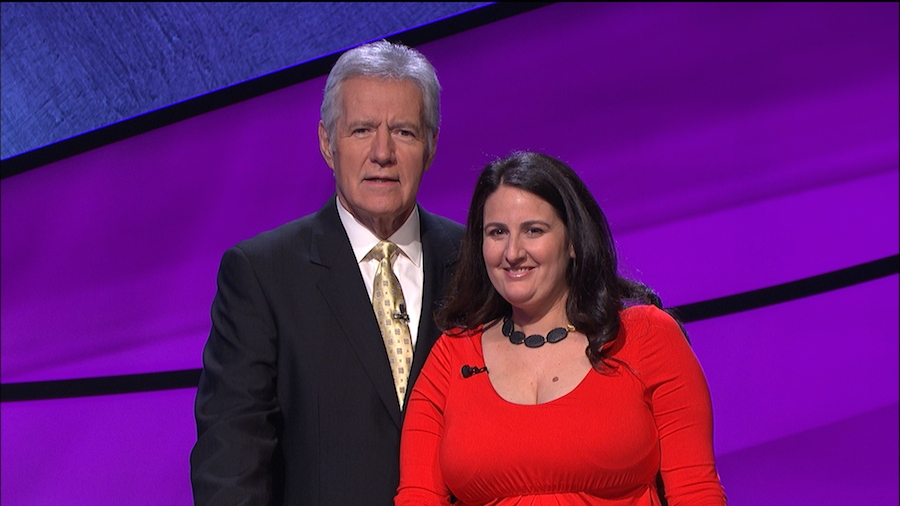Sari Laufer isn’t allowed to say how well she did on the TV quiz show “Jeopardy” until the first episode featuring her airs Wednesday night.
One thing the 35-year-old Reform rabbi will share, however, is that she was “really determined” to answer correctly the one Jewish question that arose during the game.
“No matter how I did, I didn’t want to be embarrassed, particularly not on a question that my congregants would be like, ‘She doesn’t know that?” she said.
The associate rabbi at Manhattan’s Congregation Rodeph Sholom, Laufer is not the first rabbi — or even the first female one — to appear on the 30-year-old quiz show. In 2011, Rabbi Joyce Newmark, a Conservative rabbi who lives in Teaneck, N.J., won $29,000 on the show.
But Laufer had long dreamed of going on the show, which she grew up watching with her grandmother, an ardent “Jeopardy” fan. She first auditioned for the show as an undergrad at Northwestern University. As a rabbinical student at Hebrew Union College-Jewish Institute of Religion’s Los Angeles campus, she made it all the way to the contestant pool but was never called to tape a show.
Last year, while pregnant with her first child, Laufer got an email from “Jeopardy” inviting her to an in-person interview on the Upper West Side. Again, she made it to the contestant pool, meaning that she could be called any time in the next 18 months.
“I literally forgot about it,” she said, noting that the months after her interview were consumed with becoming a mother (her son Jacob is now 8 months old), closely followed by the loss of her “Jeopardy”-loving grandmother in December.
Because it happened in year marked by critical life events, Laufer said she was able to put the show in perspective and, instead of feeling pressured to win, could relax and enjoy herself.
“I was able to be there and feel like my grandmother was with me,” she said.
Did her rabbinical training help on the show?
“I think more than anything, I’m just totally comfortable in front of a crowd,” she said. “Some people, when they get in there with the lights and microphone, they get overwhelmed. That didn’t faze me.”
“Had I gotten one of those Hebrew Bible categories, it would have been fantastic,” she added.
JTA has documented Jewish history in real-time for over a century. Keep our journalism strong by joining us in supporting independent, award-winning reporting.






